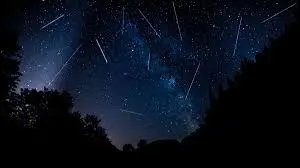It’s an amazing time of year to be a stargazer as the night skies are about to light up with three different meteor showers over a two-week period.
Exciting Celestial Events Ahead; Your Ultimate Guide, to This Summers Meteor Showers
Summer evenings bring more than warmth and a sky full of stars; they present a spectacular show for passionate stargazers. In July and August the night sky will be illuminated by three meteor showers that’re sure to provide a breathtaking visual experience. From the Southern Delta Aquariids, to the Perseids here’s all you need to know to fully enjoy this meteor shower season.
A Trio of Celestial Wonders; What You Can Anticipate
Southern Delta Aquariids; July 18. July 29
Since July 18 the Southern Delta Aquariids, a meteor shower has been capturing the attention of stargazers. Is set to reach its peak on the night of July 29. While the origins of this shower remain somewhat enigmatic it is thought to stem from comet 96P Machholz. This meteor display is predominantly observable, from the Southern Hemisphere, where as 20 shooting stars, per hour might illuminate the night sky.
However these shooting stars are often dim. Their streaks may not be as long or dramatic, as those from meteor showers. For a viewing experience head to a place from city lights and look towards the Aquarius constellation. If the Moon is shining brightly it could make seeing the shooting stars a bit so you might want to use a pollution filter or try out a stargazing app to make your night sky observation even better.
Alpha Capricornids: July 30
The Alpha Capricornids meteor shower will be visible, on July 30 following the decline of the Southern Delta Aquariids. While this shower may not be as intense producing around five meteors, per hour it is known for its fireballs that light up the night sky.
he Alpha Capricornids unlike the Southern Delta Aquariids can be seen from both the Southern Hemispheres. For a viewing experience direct your gaze towards the point, near Alpha Capricorni in the constellation of Capricornus. Using a stargazing app can prove helpful in pinpointing the location of the radiant.
Perseids: August 11
The Perseids, known as the highlight of summer meteor showers are eagerly awaited by stargazers globally. The peak of this event falls on August 11. Is famous, for its mesmerizing spectacle. Linked to Comet 109P/Swift Tuttle the Perseids have the potential to create a show with around 100 meteors, per hour establishing it as one of the remarkable meteor showers annually.
On the evening of August 11 the Moon will dip below the horizon at 1 a.m. creating a setting, for observing meteors. The radiant point for the Perseids meteor shower is situated close to the Perseus constellation. To fully enjoy this event find a spot away from city lights lay down on your back and give your eyes time to adjust to the darkness.
Avoid Light Pollution;
Head to an area, from urban lights. The clearer the sky the spectacular your meteor viewing will be.
Utilize Skywatching Resources;
Skywatching applications and tools can assist you in pinpointing the points of the meteor showers and recognizing constellations.
Practice Patience; Meteors may show up at any moment during the shower so allocate time to observe and savor the spectacle.
Dress Comfortably;
Since the weather can change it’s an idea to wear layers and bring along a blanket or a comfy chair to make watching the stars more enjoyable. With these tips and essentials you’re all set to witness one of natures mesmerizing displays. Gather your stargazing equipment, scout out a spot and get ready, for a summer filled with dazzling meteor shows!
Recommendation for Beginners;
Star Map Guide. If you’re new to exploring the night sky this informative star map is perfect for helping you spot constellations and celestial objects enhancing your meteor shower experience.
Get ready for a summer, under the stars. Whether you’re an observer or just starting out the upcoming meteor showers promise nights brimming with awe and inspiration.


